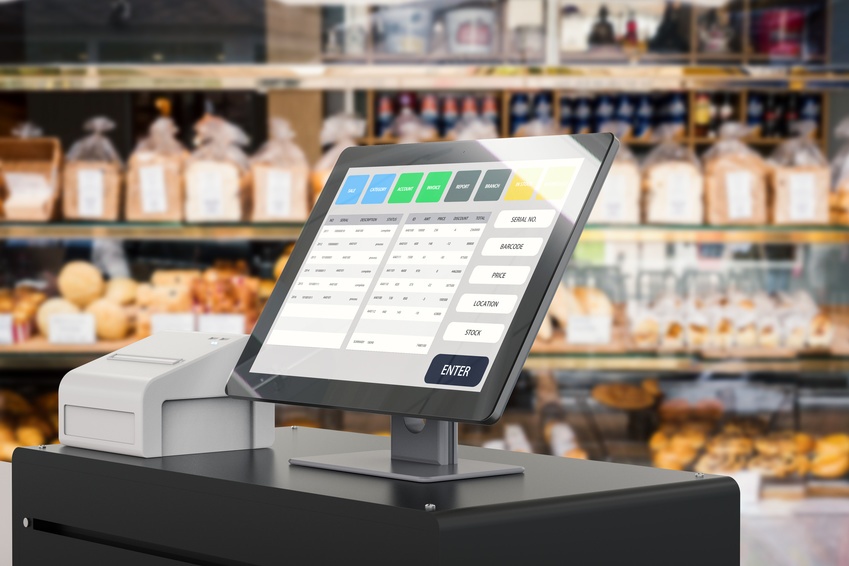Tech deployments have become as common in the retail world as a clearance sale. Advancements in technology have revolutionized every industry, but they’ve had a profound impact on retail. Every retailer — whether they’re online, brick-and-mortar, or both — has to be a tech company to some extent.
As a retail IT support provider, you see this tech evolution firsthand. You may help stores deploy new payment terminals to keep up with the latest devices. Perhaps you help retailers implement and maintain interactive displays and kiosks that allow for a more self-guided shopping experience. Maybe you support a retailer’s online shopping platform. The options for tech deployment in retail are virtually limitless.
Of course, all of these new capabilities and solutions require significant resources, including labor hours. That’s where you and your field team come in. However, to stay competitive and win new retail business, you have to offer excellent service at favorable rates — or even change the way you sell your products. Transformation is all around retail.
How do you protect cost efficiency on your IT deployments so you can maintain your competitive edge in the world of retail tech support? Below are a few tips to help keep labor costs down while still providing the high level of support that your customers expect:
1. Recruit or Develop Your Own Talent Pool of the Effective and Efficient Field Techs
Efficiency is the name of the game when it comes to keeping labor costs under control. The less time it takes to resolve issues and deploy new services, the less you’ll have to pay to field techs, and the lower your rates will be for your customers. If you can hire and deploy techs who work quickly, you’ll be in a great position to maximize cost efficiency.
Of course, hiring the most effective and efficient field techs is easier said than done. You may not always be able to deploy your top choice. In some markets, you may have little experience and may not know exactly which techs are the best at their jobs.
Field service management (FSM) software can help you gain transparency into the field tech market and make smarter hiring decisions. You can choose from a pool of available techs, and you may even be able to sort by their experience level or by their performance on past jobs. That way, you can hire and deploy with confidence.
2. Reduce Communication Delays
It’s the kiss of death for any tech deployment. You hire an experienced field technician for a job and send them the information. They go to the retail location and get to work, but they soon realize they don’t have all the information they need to get the job done. So they call your team, or send an email, with their question. Thus starts the game of phone tag or email tag as both sides send information back and forth.
What if this exchange of information could happen in real-time without the delays in between messages? What if it were like your in-office representative were talking face-to-face with the field tech? You’d eliminate communication delays, and the job would get done faster, saving you money on labor costs.
Again, FSM software can solve this dilemma. The software serves as a communication hub. Your tech can chat directly with any other relevant team members in the software, and both sides can exchange information in real time. Your field tech is never left idle waiting for someone to return their phone call or email. They ask questions, and you answer them until they have the data they need to complete the job.
3. Eliminate Redundant Administrative Work
You likely know very well all the backend administrative work that comes with a field service platform. You have to collect and process documents for all field workers. You have to process and transmit payments. You may need to review labor hours to identify any discrepancies. There’s also follow-up with the retailer to make sure the deployment met with their expectations.
All of those steps, and more, require some level of back-office input that inflates your labor costs. After all, someone has to enter tax information into your payroll system. Someone has to calculate hours and send payments. What if you could automate some of those processes and eliminate the administrative labor needs? Evaluating your people, processes, and tools is critical. Integrating tools to reduce steps or eliminate potential errors is key.
You can do that with an FSM platform. Your field workers input their tax information, hours, direct deposit information, and other relevant data when they enter the talent pool. You then process payments and other tasks with just a few clicks on the mouse. You can even use the software to review hours and job outcomes. Spend less time administering your field service and more time optimizing it.
4. Perform Regular Deployment “Lessons Learned” to Find Areas for Improvement
Perhaps the best way to drive down labor costs is to review your past deployments and identify areas for improvement. Of course, that’s not always easy. You don’t have the time to talk to every single field tech about every job they perform.
However, you can use the FSM software as a central collection hub for job information. You can ask your field techs to leave notes in the software about each job. You can then mine those notes for information.
What was different about this deployment than other deployments? What would have helped them complete the job faster? Do you need to collect additional information from the retailer? Do you need to provide more data to the tech before the job? Do you need to change your process?
To drive labor cost efficiency, you need a continuous improvement mindset. Always look for the next cost-saving levers. Identify areas in every deployment that can be improved in the future. To find those savings areas, you’ll need information. Your FSM software can serve as the vehicle to collect that data.
Tech and retail will continue to integrate going forward. As an IT services provider, you’ll need to provide high-quality, effective, and cost-efficient service if you want to add new retail business. Implement these steps and more to drive down your costs and pass those savings on to retailers. FSM software could be the tool you need to sharpen your competitive edge.






